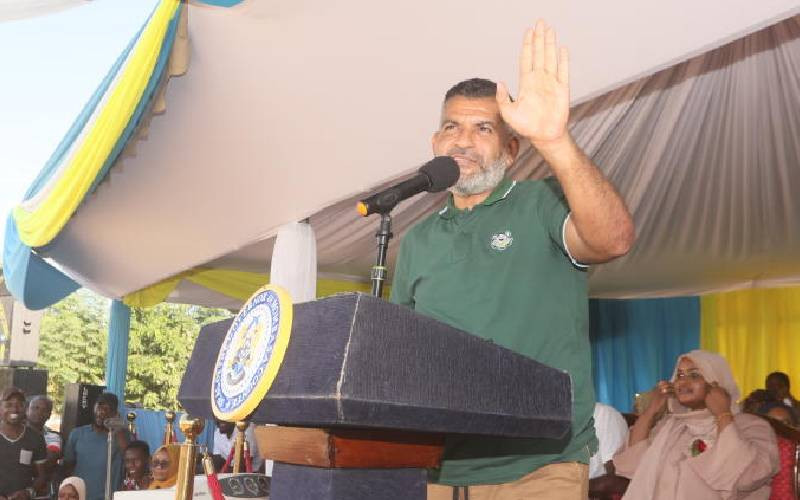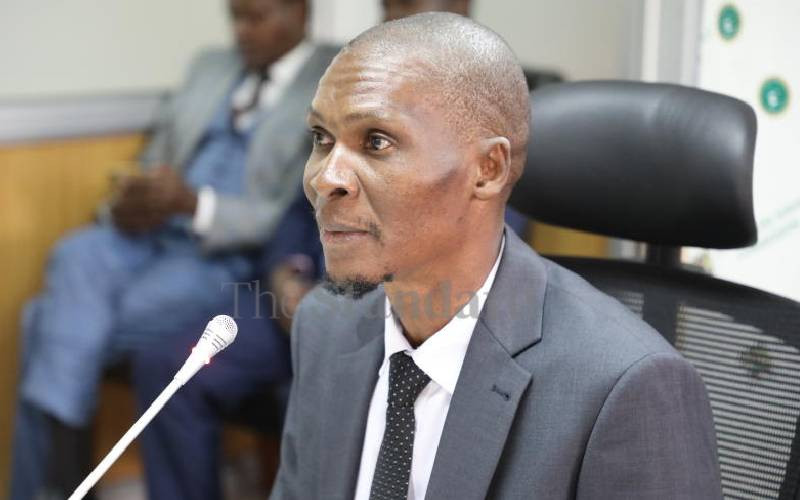By Ndung’u Wainaina
A landmark judgement of the High Court of Kenya disqualifying Mumo Matemu from heading the Ethics and Anti-Corruption Commission is one of the bright shades in an otherwise politically polarised year.
This ruling made three critical determinations: It reviewed the powers of the Judiciary toward the actions of Parliament and Executive demarcating the separation of powers of three arms of State; asserted role of courts in reviewing appointments made by the Executive and Parliament; and completely settled the integrity or suitability standards to hold public office. The ruling dealt a fatal blow to the watered down Leadership and Integrity Act 2012 passed by Parliament. The judges strongly indicted Parliament and Executive for lack of judicious rigour and thoroughness in performance of public duty.
Reprehensibly disgusting individualistic interests in the Executive and Parliament have dominated the year 2012. Individuals expected to hold public office and act in trust have been callously deploying retrogressive hurdles to frustrate public interest. It has also revealed worrying levels of overrated sense of self-importance where despite clear guiding constitutional principles and values, and public outcry the Executive and Parliament have collectively demonstrated little sensitivity.
The fatigued route taken has been to justify procedure over substance in purported compliance with the Constitution. Right from the sacked judges who despite being deemed unfit for office months ago and even losing their appeals, still unjustly draw their salaries partly because for some weird reasons, the President has refused to gazette their sacking. The refusal to withdraw ‘County Commissioners’ and the disguised postponement of police reforms when insecurity is at its peak, cap the year when every conceivable reason has been advanced to slow reforms.
For Parliament, I will not waste my time to enumerate its countless efforts to entrench impunity. It has proven to be the national hallmark of shame and embarrassment as MPs’ desire for self-fulfilment comes first to national patriotism. In all these situations, the erroneous assumption is that the individual nominees to public offices and/or public servants do not have corresponding duty to withdraw their candidature or position honourably allowing the country to move on. In fact, individuals cling to office defiantly raising questions on their fitness to serve in public office. In recent history, only Justice Smokin Wanjala had the audacity to leave KACC honourably.
On the political scene, we have purported presidential candidates contesting the presidency despite having international criminal charges being formally confirmed against them. Many others join them across all parties with known corrupt backgrounds and some currently facing all sorts of investigations and criminal prosecutions.
The common denominator in the examples above is the artificial quagmire of finding a balance between ‘individual rights’ and ‘the public rights/interests’. Article 50 (2) (a) of the Constitution guarantees ‘presumption of innocence’ whatever the circumstances. It also sets limitations on situations where the ‘public right’ to a leadership of integrity, honesty and unshaken probity is superior to ‘individual right’ dictated simply by personal aspiration to assume certain public office.
In the Matemu case, the judges had this to say on ‘presumption of innocence until proven guilty’; “Kenyans were very clear in their intentions when they entrenched Chapter Six and Article 73 in the Constitution. They were singular aware the Constitution has other values such as the presumption of innocence until proven guilty. Yet, Kenyans were singular desirous of cleaning up our politics and governance structures by insisting on high standards of personal integrity among those seeking to govern us or hold public office”. It is therefore grossly repugnant to insist on having unbridled right to contest or be appointed to an office in the public service even with unresolved ethical and integrity issues. It is a clear signal of lack of regard for the Constitution and reputation of the country, and respect for the people of Kenya. Upholding and adhering to the principles enshrined in Chapter Six is an obligation. I have argued severally, sometimes on the face of misdirected threats that the country cannot afford to trivialise questions of integrity if it wants to realise economic goals. However, many have chosen the palliative convenient path of ethnic bigotry.
In setting aside Matemu’s appointment, the Judges declared “...to our mind, therefore, a person is said to lack integrity when there are serious unresolved questions about his honesty, financial probity, scrupulousness, fairness, reputation, soundness of his moral judgment or his commitment to the national values enumerated in the Constitution”.
To show seriousness they emphatically concluded ‘...In our view, for purposes of the integrity test in our Constitution, there is no requirement that the behaviour, attribute or conduct in question has to rise to the threshold of criminality. It therefore follows that the fact that a person has not been convicted of a criminal offence is not dispositive of the inquiry whether they lack integrity or not.’
The judges could not have been more accurate on the overriding values of the country. It is a position already practiced in all major self-respecting democracies where people withdraw at the slightest credible attack on their character. Of importance is the fact that the judgment challenges all public institutions to embrace national ethos and stand by the Constitution.
The IEBC must stand up and defend the Constitution as its duty to the country. Commissioners are bound by the Constitution and do understand the country’s history and desire for clean politics. They certainly know that Kenya belongs to all of us and none has unqualified birthright to any office. The unequivocal public condemnation and reactions to Embakasi MP’s outbursts firmly confirm that majority of Kenyans already crossed the line in upholding Chapter Six.
The writer is Executive Director, International Centre for Policy and Conflict
Stay informed. Subscribe to our newsletter
 The Standard Group Plc is a
multi-media organization with investments in media platforms spanning newspaper
print operations, television, radio broadcasting, digital and online services. The
Standard Group is recognized as a leading multi-media house in Kenya with a key
influence in matters of national and international interest.
The Standard Group Plc is a
multi-media organization with investments in media platforms spanning newspaper
print operations, television, radio broadcasting, digital and online services. The
Standard Group is recognized as a leading multi-media house in Kenya with a key
influence in matters of national and international interest.
 The Standard Group Plc is a
multi-media organization with investments in media platforms spanning newspaper
print operations, television, radio broadcasting, digital and online services. The
Standard Group is recognized as a leading multi-media house in Kenya with a key
influence in matters of national and international interest.
The Standard Group Plc is a
multi-media organization with investments in media platforms spanning newspaper
print operations, television, radio broadcasting, digital and online services. The
Standard Group is recognized as a leading multi-media house in Kenya with a key
influence in matters of national and international interest.








